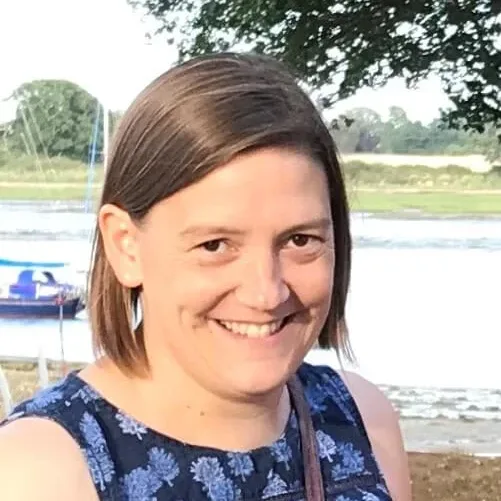I had just embarked on my Professional Doctorate and I was already amidst the first flurries of panic and excitement, following the first online residential weekend with the Open University. I found the weekend novel and fun – cake arrived through the post, there was a Padlet for people to post their introductions and some initial reading to undertake. What was not to like? Cake, people and learning opportunities – three of my favourite things!
But then the fall… how on earth was I going to fit this in, on top of being a full-time working parent?
Utterly Overwhelmed
The module materials were dense and detailed, seeming to require hours of dedicated, focused time. I found myself in a WhatsApp group where people were firing off multiple queries, questions, and reflections. And then the clanger which really wound me up – a discussion about who would take a regular study day and when. To me, the posts seemed to come thick and fast… they collided with the other WhatsApp group messages regarding which of my children needed what item of uniform, cooking ingredient or homework task completed on a particular day.
In addition, I had a new student email which sat alongside my work email and although it didn’t ping quite so often, it still added a further layer of information overload. There were numerous lengthy communications, often in abbreviations, and my head was spinning; utterly overwhelmed with information firing at me from multiple directions.
A Draft?
Then a further shock that nearly knocked me sideways – my supervisor asked what date I would like to agree for a draft of my first assignment… ‘A draft?’ I asked, puzzled. My stomach tightened with dread. Unconsciously my body and mind both knew that this was a foreign concept to me. ‘A draft?’ I asked again. ‘What exactly do you mean?’ I knew the question sounded daft, and I can’t recall whether I was brave enough to ask it or whether I masked it and went along with the request. But I know my brain works with either ‘complete and only just submitted with moments to spare of a deadline’, or ‘not yet done’. It does not work with anything in between, and it certainly can’t manage a full draft of an overall task at a moment in time anywhere prior to the actual, official deadline.
Hitting a Low
Very quickly following the heady high of the online residential weekend, I hit a real low. It wasn’t so much imposter syndrome, which is likely for anyone learning at the next level, but more utter panic that I could not cope with this. I knew that my brain was more than capable of coping with doctoral study (years of being teased, envied and at times bullied for being clever meant I knew I could learn and write well). But somehow, I seemed unable to put into words and sound credible when describing the challenges I knew I would now face again as a student. Challenges I had learned to live with as a full-time student in my early twenties, because no one cares much about the process when the outcome is high marks. However, these were challenges that I knew would not sit easily alongside my responsibilities at work and at home.
Too Many Responsibilities
Twenty years ago, I could afford to waste days pondering and it didn’t matter if I forgot to eat or fell asleep in the middle of the day because I lost concentration. But now I had too many responsibilities and I genuinely worried that I might forget to feed my children or carelessly miss a school pick-up if I dared to put my head down and immerse myself in study. Feelings of guilt, incompetence and failure crept in fast. The age-old reminders and top tips that make my stomach sink were all there – ‘you will need to be organised’, ‘keep meticulous records of your work’, ‘set aside clear time for studying’, ‘create a schedule and stick to it’, ‘have a study plan’. They sound so obvious and for everyone else, apparently, they work. Yet in forty-odd years, I knew these didn’t work for me.
My best friend’s words rang through my head: ‘but you know you always pull it off. We all know you will do it’. They ought to have felt like words of solace because they were true – I had always ‘pulled it off’, so what was my problem? I wallowed in thought for some while – why was I finding this quite so hard? Especially as I was only a few weeks in! The problem was, my style of learning was highly stressful, frustrating, overwhelming, and made for a difficult experience, that was made visible in my becoming a shouty Mum, with minimal tolerance for anything. A horrendous sleep pattern, any routine that did once exist falling out of kilter and, more than anything, a brain that was so close to exploding that it couldn’t focus on anything – at work or home. Keys, glasses and purse constantly missing because I simply could not remember where I had put things down.
In those early weeks, I did plough on. Not yet consciously aware of the relevance of the information I am sharing here or how the dots would join to create a completely unexpected picture. I have often shared Johari’s Window with students I teach – what’s known and unknown to self and others. The unknown to both self and others always makes for some fun and interesting discussions, simply by virtue of the unknowing feature! What might happen next? At the age of 48 years, I can confidently say, I didn’t see this one coming…
ADHD Awareness Month
Here I was, in October 2021, riding the waves of overwhelm and anxiety as I began to delve into the module materials and frequently panicking that it was an impossible challenge for me. I often turned to mindless scrolling on Facebook as an outlet for my busy head that wouldn’t focus when I was asking it to. I found my feed dotted with posts about ADHD Awareness Month. As a Children and Families Social Worker, I had worked several times with parents of children with ADHD, but I had never seen descriptions of adult women with ADHD… Time blindness, executive functioning difficulties, procrastination, emotional dysregulation, poor working memory. It wasn’t so much that ‘the penny dropped’, more that my brain became a suddenly successful 2p arcade slot machine on the seafront and in true ADHD style, multiple pennies dropped; jangling, sparkling, colliding, and racing through my head. All suddenly giving me a new, neurodivergent lens through which to see myself. Wow! So much suddenly made sense to me!
Working My Way
I promised my husband that I would not go down the rabbit-hole of reading about ADHD and that I would stay as focused as I could on the tasks at hand for my first year of the Professional Doctorate programme. It was tough, it was awful, and it was stressful in ways that people outside of our home probably never saw. A hidden battle of coping with a neurodivergent brain in a world generally designed for neurotypical ways of functioning. I did make some pragmatic decisions along the way:
– Despite worrying about becoming isolated, I left the WhatsApp group to reduce one aspect of ‘noise’ and actively chose a wonderful study buddy from that early Padlet.
– I handed in my version of drafts, which is ‘everything I have done so far by a given point’, but not necessarily complete, and this worked well to gain feedback with time still to spare before the actual deadline.
– Increasingly I allowed myself to work my way: through the night and into the early hours when it was quiet and dark and very up to the deadline, resulting in the feedback of ‘this is not a conclusion’, to which I just laughed! Yes. I know. I ran out of time!
Unhelpful Responses
I am self-diagnosed, not yet formally diagnosed. With such a personal, lightbulb moment I was ill-prepared for the various responses to my news:
…It’s likely just perimenopause; it’s probably a fallout from Covid and lockdowns; ADHD isn’t real; you must have unresolved childhood trauma; everyone is a little bit disorganised and forgetful; if we can just help you find some time management strategies…
These were all well-intended responses, but stung a bit, particularly since a further ADHD trait that resonates is emotional sensitivity. From my perspective, it seemed so crystal clear what my struggles and challenges were about. But this unexpected array of responses made me wobble too – perhaps I was over-exaggerating, making it up, just needed to try harder with my organisation and time management. Of course, this way of thinking is unhelpful and invalidating.
I am incredibly grateful to my supervisor who just listened to my sudden ADHD reflections and never once judged or commented. I have learned the hard way that I need to block out time so that I can drift into my delightful state of hyperfocus. Whilst equally when procrastination hits, mostly I have stopped fighting against it and I change tack and get something else done, even if that is a mundane task of emptying the dishwasher; the time is no longer wasted, I have just pivoted.
Final Thoughts
My ADHD is still a journey of discovery. It’s currently 3.53am and it is the first time I have given in to my busy brain and experimented to see what would happen if I got up and typed this out of my head! I will leave others to judge if it is of interest or help to those reading this. It is what it is. And I am who I am!
The friends and colleagues whose words have warmed me the most are those who simply accepted this additional information – ‘we appreciate you as you are’. I can’t thank them enough, because in doing so they have helped me keep things in balance and remind me of the strengths that my complicated brain brings with it – the high energy, the need to have fun and share a joke online, the endless ideas I bring and the willingness to look for connections and find solutions.






